‘Rent-a-party’ phenomenon emerges on political landscape
Several banned outfits, individual participating in polls as part of other parties
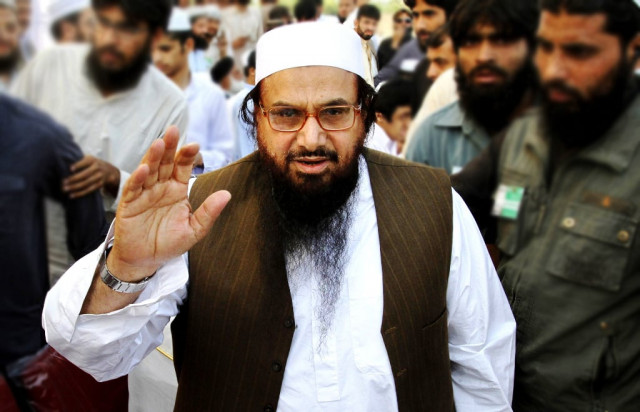
Hafiz Saeed. PHOTO: REUTERS
Milli Muslim League (MML), the political branch of the ‘under observation’ Jamaatud Dawa (JuD), is contesting the general elections under the umbrella of Allah-o-Akbar Tehreek after the Hafiz Saeed-led MML’s registration was denied by the Election Commission of Pakistan as it could not get clearance from the Ministry of Interior.
Saeed’s original party JuD is currently placed under observation in a list maintained by the interior ministry which deals with banned organisations. Months ago the Pakistani government via a presidential ordinance had decided to take all outfits or individuals as ‘proscribed’ which have been declared outlawed by United Nations Security Council (UNSC).
Interestingly, JuD under this presidential order also stands banned.
Meanwhile, the Allah-o-Akbar Tehreek has fielded candidates on hundreds of seats across the country to show their political power in the upcoming general elections, scheduled on July 25 this year. However, this is also a reality that a majority of candidates of the party are not from JuD. However, there are candidates who have close family relations with Saeed and are contesting elections on its ticket.
Similarly, Ahle Sunnat Wal Jamat (ASWJ) which was formerly known as Sipah-i -Sahaba Pakistan (SSP) was declared a banned outfit in 2012. However, there are many renowned personalities of this barred sectarian group which are taking part in the upcoming elections on the ticket of Pakistan Rah-e-Haq Party (PRHP) from different constituencies. Hakeem Muhammad Ibrahim Qasmi, who was previously affiliated with SSP, founded the PRHP in February 2012.
Economic stability put on back burner by major political parties
Tahir Malik, a political analyst and academic, said that religious parties have been participating in the electoral process since its inception. However, he said, if outfits having an extreme sectarian-base continue to be allowed to take part in the polls, it reflects the weakness of the state.
On the phenomenon of ‘rent-a-party’, he said that just like licenses of TV channels or other items like it were sold in the market, now a trend is emerging in the backdrop of the 2018 elections, where political parties may also be hired.
He said there are parties that neither have a street presence in the country nor any foundation on the grassroots level are basically pressure groups that mysteriously surface on the political landscape during polls and then suddenly disappear.
“This whole process is anomalous. These groups are basically formed for targeted objectives,” Malik further stated.
Talking over the emergence of Tehreek-e-Labbaik Pakistan (TLP), which is headed by Khadim Hussain Rizvi, he said it would take votes from rural Punjab in areas like Sargodha, Jhang, Toba Tek Singh and others.
“TLP could possibly affect the vote bank of PML-N provided voter turnout remains low”, observed Malik adding that if turnout is high, it would be difficult for the newly-formed party to take a bite out of the vote banks of any mainstream political party in the forthcoming elections.
Speculating on Karachi's situation: Political turnaround or action replay?
He said besides affecting the vote banks of mainstream parties, the newly-surfacing religious parties having sectarian bases may also affect the vote banks of religious parties like JI, JUI-F and others in the upcoming general elections.
Similarly, he said that previous election campaigns of political parties used to be very vibrant, with issues of public importance being discussed. This time, he said, instead of discussing people's issues, the role of shrines seems more evident.
According to Malik, there is also a realisation in the country that Pakistan is going through a critical phase and it faces real threats from non-state actors.

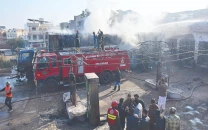

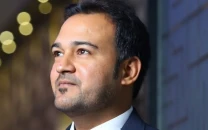
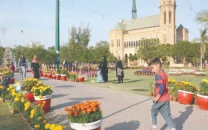
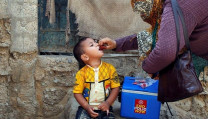













COMMENTS
Comments are moderated and generally will be posted if they are on-topic and not abusive.
For more information, please see our Comments FAQ